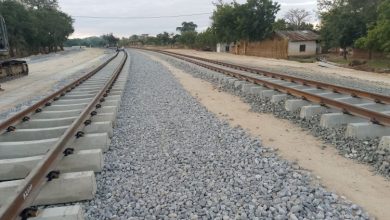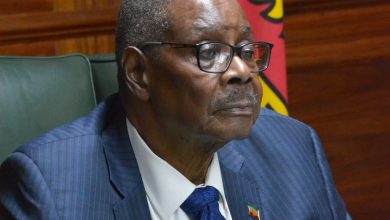Grants inflows set to decline by 61.8%—AfDB
Malawi’s actual grant disbursements will fall short by 61.8 percent of the target in the 2025/26 financial year following aid cut and US tariff impositions, the African Development Bank (AfDB) has projected
In its 2025 Country Focus published on Monday, the pan-African bank said this has been compounded by the suspension of $350 million annual funding from the United States Agency for International Development (USaid), the cancellation of the $350 million (about K613 billion) five-year Millennium Challenge Corporation (MCC) land compact and the imposition of an 18 percent tariff on exports from Malawi to the US.
Reads the bank’s report in part: “While the first-round trade effects of the tariffs are limited due to the small share of Malawi’s exports to the US at [less than four percent], the aid cuts will have a big effect given that 87 percent of aid is allocated to capital projects, directly affecting infrastructure development and economic growth.

“The second-round trade effects emanate from reduced global growth, especially that of South Africa, the European Union and the United Kingdom, which will reduce Malawi’s export demand.”
AfDB observed that in the medium-to-long-term, both aid cuts and tariff imposition will have employment, productivity and competitiveness and growth effects that will exacerbate macro-fiscal instability.
AfDB data further show that while domestic revenue has risen from 14.7 percent of gross domestic product (GDP) in 2022 to 18.1 percent of GDP in 2024, expenditures have risen from 26.8 percent of GDP in 2022 to 32 percent of GDP in 2024 in the face of rising financing gap of about $3.59 billion (about K6.2 trillion) or $0.63 billion (K1.1 trillion) annually.
This would enable the country to fast-track structural transformation for the 2030 Agenda for Sustainable Development, which envisions a secure world free of poverty and hunger and the African Union’s Agenda 2063, a blueprint and master plan for sustainable development and economic growth of the continent.
In an interview, Centre for Social Concern economic governance officer Agnes Nyirongo observed that the sharp decline in disbursements has left a substantial funding gap, undermining the government’s ability to meet its obligations.
She said: “Grant financing is predominantly allocated to capital projects such as infrastructure development, healthcare systems, education facilities, agricultural support programs, and public works.
“The loss of this funding means delays or outright cancellation of projects, threatening employment, productivity and service delivery. Many initiatives tied to long-term growth are now hanging in the balance.”
Minister of Finance and Economic Affairs Simplex Chithyola-Banda projected grants at K1.17 trillion in the 2024/25 fiscal year, with K1.1 trillion xpected from international organisations and K72.69 billion from foreign governments.
This means that at 67 percent, grants would have declined by about K800 billion.
Ministry of Finance and Economic Affairs spokesperson Williams Banda was yet to respond to our questionnaire, but is quoted as having said that only K9.2 billion of USAid funding appeared in the 2024/25 National Budget, but that the US government off-budget projection in 2024/25 fiscal year was about K307 billion.
In his earlier comment following the cancellation of MCC, Minister of Transport Jacob Hara said the compact came with funding for ongoing road works.
“We shall have to start from scratch looking for new financing,” he said.
In the MCC compact, $244 million (about K427 billion) was budgeted for the roads while $44 million (about K77 billion) was for the land project and another $8.5 million (about K15 billion) was for a project called American Catalyst Facility for Development.





